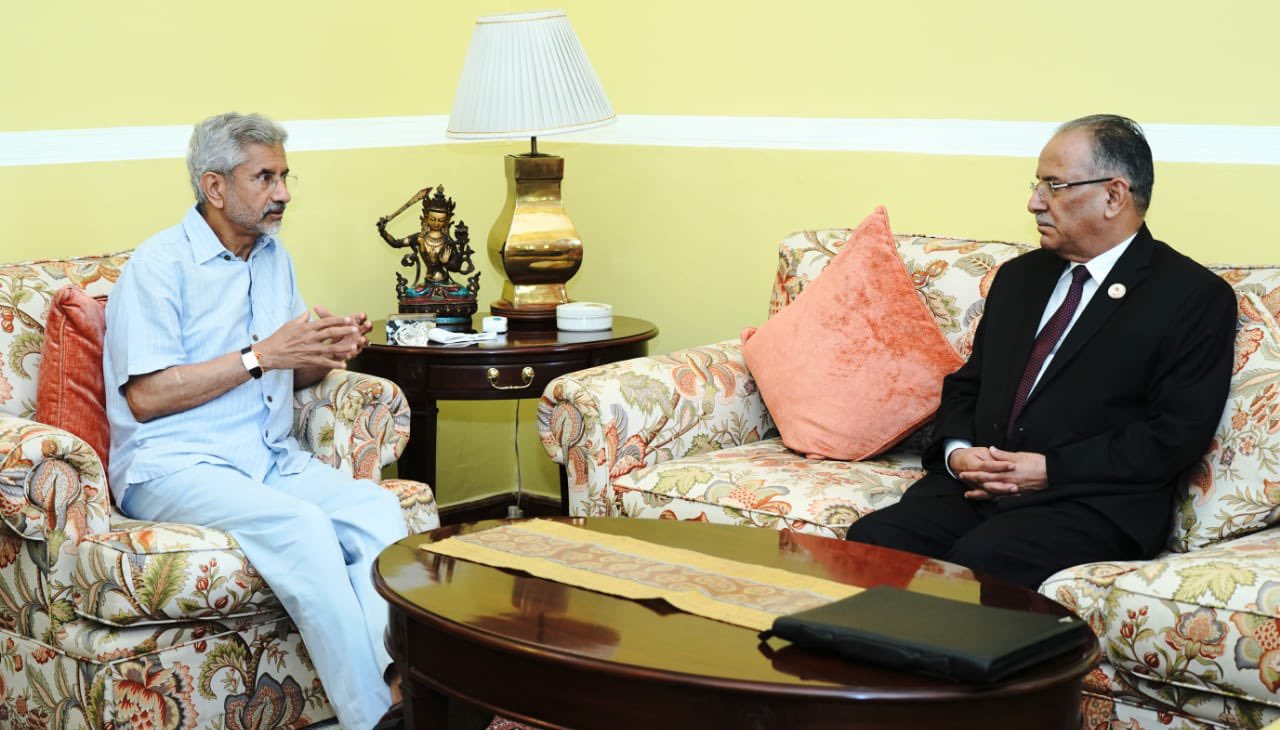Kathmandu: The Indian Foreign Minister, S. Jaishankar, is scheduled to visit Nepal in the first week of Janury 2024. According to high diplomatic sources, the seventh meeting of the Nepal-India Foreign Ministerial-level mechanism will see the participation of Indian Foreign Minister S. Jaishankar in the 1st week of New Year. Government officials state that significant agreements will be signed during the visit.
As per diplomatic sources, the dates for Jaishankar’s visit to Nepal are set for the 4th of January, and he will return to India on the 5th. The preparation for this visit was underway in October, but due to the busy schedule of foreign ministers from both countries, the timing was challenging. An official mentioned, “The preparation for the meeting scheduled in October was ongoing. However, due to the busy schedules of foreign ministers from both countries, it was not possible.”
Jaishankar’s earlier participation in international forums and conferences from the Indian side had hindered the scheduling. India hosted the G20 Summit, and he was engaged in various international events. The meeting scheduled for October was aimed at discussions and reviews on various aspects of cooperation and collaboration between the two countries.
The 20th edition of the India-Nepal summit was hosted by India itself in October. India also participated in international forums such as the United Nations General Assembly. Nepal’s Foreign Minister was also busy with his schedule, particularly involved in activities related to the conflict between Hamas and Israel. He was engaged in rescuing and supporting Nepali students and workers affected by the conflict.
Although the date for the summit and Jaishankar’s Nepal visit has not been publicly disclosed, the preparation for the ministerial-level mechanism meeting is underway, and it is expected to take place in January, provided both ministers find a suitable time in their schedules.
During a meeting with journalists on Monday, Prime Minister Pushpa Kamal Dahal ‘Prachanda’ mentioned that Indian Foreign Minister Jaishankar is likely to visit Nepal next month. He stated, “The preparations for the visit are complete; he may come next month. You will be informed of the date.”
Although the dates for the summit and Jaishankar’s Nepal visit have not been officially announced yet, both countries are preparing for significant agreements to be signed during the visit. According to officials, Jaishankar’s visit is expected to include the signing of three major agreements. The agreements include a declaration to expedite the Pancheshwar Project in the Mahakali River, India’s commitment to purchase up to 10,000 megawatts of electricity from Nepal within the next 10 years, and an agreement to increase the budget for the ‘Small Development Projects’ (SDP) program, enabling immediate implementation.
The Mahakali River Agreement, in particular, aims to accelerate the construction of the Pancheshwar Project within six months. Despite mentioning in the past that the project would be completed within six months of DPR (Detailed Project Report) approval, it has not been possible so far. According to officials, there is still no agreement on issues such as water use, the sharing of benefits, and the modality of investment.
During the visit of Prime Minister Prachanda to India on the May–June, an initial agreement on the long-standing electricity trade between the two countries was signed. However, it was not implemented due to non-approval by the Indian Cabinet. Now, with the approval from the Indian Cabinet, it is expected that the remaining signatures will be completed during Jaishankar’s visit to Nepal.
The Indian Embassy plans to increase the budget for small projects that it can readily implement during Jaishankar’s visit. The proposal to increase the approved budget of up to 5 crores to 24 crores has been sent to the Prime Minister’s Office by the Ministry of Finance.
The Nepali government has approved the proposal to extend the time for providing assistance in small projects to the Indian Embassy for three more years, until 2026.




COMMENTS